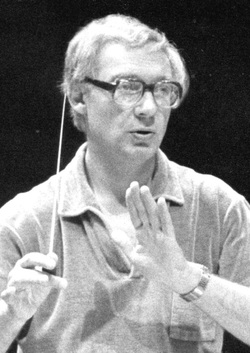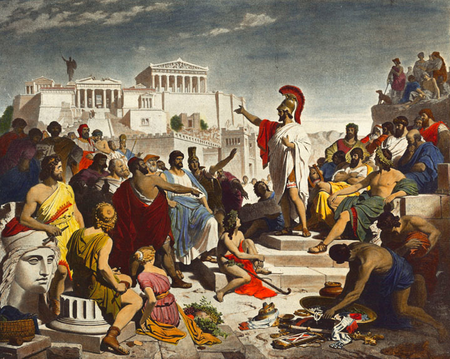Peter Aston was born in Birmingham. He studied at The Birmingham School of Music and The University of York. In 1964 he was a lecturer in music at The University York. Ten years layter he was appointed Professor of Music at The University of East Anglia and eventually Emeritus Professor of Composition. He is best known for his liturgical works although also wrote chamber works for voice and instrument, choral and orchestral works and an opera for children. He was a lay canon in Norwich Cathedral and founded the Norwich Festival of Contemporary Church Music. He founded the Tudor Consort and English Baroque Ensembles.
 |
| Peter Aston from The Morley Consort of Voices |
"So they gave their bodies to the commonwealth and received, each for his own memory, praise that will never die, and with it the grandest of all sepulchres, not that in which their mortal bones are laid, but a home in the minds of men, where their glory remains fresh to stir to speech or action as the occasion may require."
 |
| Pericles' Funeral Oration by Philipp Foltz |




